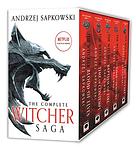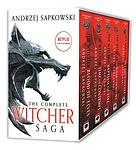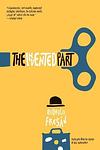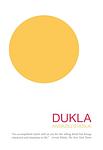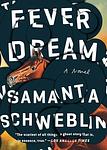The Greatest Polish, Argentinian "Fiction" Books Since 1970
Click to learn how this list is calculated.
This list represents a comprehensive and trusted collection of the greatest books. Developed through a specialized algorithm, it brings together 300 'best of' book lists to form a definitive guide to the world's most acclaimed books. For those interested in how these books are chosen, additional details can be found on the rankings page.
Genres
Countries
Date Range
Reading Statistics
Click the button below to see how many of these books you've read!
Download
If you're interested in downloading this list as a CSV file for use in a spreadsheet application, you can easily do so by clicking the button below. Please note that to ensure a manageable file size and faster download, the CSV will include details for only the first 500 books.
Download-
1. Kiss of the Spider Woman by Manuel Puig
"Kiss of the Spider Woman" is a novel set in an Argentine prison where two cellmates, a gay window dresser and a political revolutionary, share stories to pass the time. The window dresser recounts various films he's seen, which often involve strong, glamorous women, while the revolutionary shares his political ideologies. As they spend time together, they form an unlikely bond, exploring themes of sexuality, oppression, and the power of storytelling.
-
2. The Futurological Congress by Stanislaw Lem
In a dystopian future, the protagonist attends a scientific conference where he is exposed to a new hallucinogenic drug that transports him to a surreal and chaotic world. As he navigates through this bizarre reality, he becomes entangled in a conspiracy involving mind-altering technology, political manipulation, and the struggle for power. This satirical novel explores themes of reality, identity, and the dangers of unchecked technological advancements.
-
3. Drive Your Plow Over the Bones of the Dead by Olga Tokarczuk
This novel centers around an eccentric woman living in a remote Polish village, who becomes embroiled in a series of mysterious deaths occurring in her community. As she investigates, she is drawn into a deeper exploration of nature, astrology, and the human psyche, all while navigating the dismissive attitudes of the local law enforcement. The narrative is a blend of dark comedy, philosophical inquiry, and mystery, with a strong underlying commentary on animal rights and environmentalism.
-
4. The Witness by Juan José Saer
"The Witness" is a novel that explores the life of a young European boy who is the only survivor of a shipwreck in the 16th century. He is found and raised by a tribe of Indians in South America, where he spends ten years of his life. The boy is eventually found by a band of Spanish conquistadors and returns to Europe, where he becomes a well-respected scholar. The story unfolds as the man, now in his 90s, recounts his experiences and struggles to reconcile his European identity with his decade-long immersion in the tribal culture.
-
5. The Beautiful Mrs. Seidenman by Andrzej Szczypiorski
Set in Nazi-occupied Warsaw, the novel tells the story of Mrs. Seidenman, a blonde, blue-eyed Jewish widow who is arrested by the Gestapo. The narrative revolves around the eclectic group of characters in her life, including a young man who is in love with her and a lawyer who is determined to save her. The book provides a vivid and poignant depiction of life under Nazi rule, exploring themes of survival, resistance, and the resilience of the human spirit.
-
6. The Censors by Luisa Valenzuela
"The Censors" is a satirical short story that delves into the life of a man who takes a job as a censor at a government agency in an attempt to intercept and approve his own letter, which he had previously sent abroad. As he becomes increasingly absorbed in his role, he starts to censor letters with zeal, losing sight of his original purpose. The story serves as a cautionary tale about the corrupting influence of power and the ease with which one can become complicit in oppressive systems, ultimately leading to a grim and ironic conclusion where the protagonist falls victim to the very system he sought to manipulate.
-
7. Santa Evita by Tomás Eloy Martínez
"Santa Evita" is a fictionalized account of the life and death of Eva Peron, the beloved First Lady of Argentina. The book delves into the mysterious journey of her embalmed corpse which was moved around the world and hidden for 16 years after her death. The narrative, interwoven with historical facts, explores the cult-like fascination and devotion that surrounded her during her life and continues after her death.
-
8. The Impenetrable Madam X by Griselda Gambaro
"The Impenetrable Madam X" is a provocative play that delves into the complexities of human relationships and societal expectations. Set against a backdrop of surrealism and absurdity, the narrative follows the titular character, a woman shrouded in mystery and power, who interacts with various other characters in a series of disjointed scenes. Through sharp dialogue and symbolic interactions, the play explores themes of identity, power dynamics, and the struggle for understanding within the confines of a world that oscillates between the real and the fantastical. The work challenges audiences to question the nature of reality and the masks people wear in their daily lives.
-
9. The Complete Fiction Of Bruno Schulz: The Street Of Crocodiles, Sanatorium Under The Sign Of The Hourglass by Bruno Schulz
"The Complete Fiction of Bruno Schulz: The Street of Crocodiles, Sanatorium Under the Sign of the Hourglass" is a collection of two surreal and imaginative novellas by Bruno Schulz. In "The Street of Crocodiles," the narrator explores his childhood memories in a bustling town filled with eccentric characters and enchanting events. In "Sanatorium Under the Sign of the Hourglass," the protagonist finds himself in a peculiar sanatorium where time seems to stand still, leading to a series of dreamlike encounters and introspective musings. Schulz's unique writing style and vivid descriptions create a captivating reading experience that blurs the line between reality and fantasy.
-
10. A Crown of Feathers and Other Stories by Isaac Bashevis Singer
"A Crown of Feathers and Other Stories" is a collection of short stories that delve into the human condition, often through the lens of Jewish culture and history. The tales are filled with elements of fantasy and folklore, exploring themes such as morality, love, loss, and the struggle between good and evil. The characters grapple with ethical dilemmas, personal identities, and the complexities of relationships, while the narrative style often combines realism with the supernatural, creating a unique blend of the mundane and the mystical.
-
11. Collected Stories by Isaac Bashevis Singer
The anthology is a compilation of short stories that delve into the complexities of human nature, morality, and faith, often through the lens of Jewish life in Eastern Europe and the immigrant experience in America. The tales, rich with folklore, mysticism, and philosophical introspection, explore themes of love, temptation, and the eternal struggle between good and evil. The author's masterful storytelling weaves together the mundane with the supernatural, creating a tapestry of narratives that reflect the author's own Yiddish heritage and his keen observations of the human condition.
-
12. We All Love Glenda So Much And Other Tales by Julio Cortazar
This collection of short stories delves into the surreal and the everyday with equal finesse, exploring the boundaries of reality and the quirks of human relationships. The narratives range from the titular tale, which examines the obsessive adoration of a famous actress, to more abstract and fantastical explorations of human experience. The author's masterful prose and innovative storytelling techniques invite readers to question the nature of truth and fiction, often blurring the lines between the two, while presenting a series of vignettes that are both thought-provoking and emotionally resonant.
-
13. Flights by Olga Tokarczuk
"Flights" is a fragmented and philosophical novel that explores the theme of travel and movement. Through a series of interconnected stories and reflections, the book delves into the nature of human existence, the complexities of modern life, and the desire for freedom and escape. With its poetic language and unconventional structure, "Flights" invites readers to contemplate the transient nature of time, the significance of journeys, and the search for meaning in a world constantly in motion.
-
14. Blood Of Elves by Andrzej Sapkowski
This novel is the first in a series that delves into a richly imagined fantasy world, where the fate of the realms hangs in the balance. It follows the story of a young girl who is destined for great power and the group of protectors, including a famed witcher, who must safeguard her from numerous forces seeking to control or destroy her. As political turmoil, ancient magic, and personal vendettas intertwine, the characters are drawn into a complex web of alliances and conflicts. The narrative explores themes of destiny, the nature of good and evil, and the impact of past choices on the present, all set against a backdrop of intricate world-building and vividly described battles.
-
15. Things We Lost In The Fire by Mariana Enríquez
"Things We Lost in the Fire" is a gripping collection of short stories set in contemporary Argentina, weaving together elements of horror, social commentary, and the supernatural. The stories delve into the lives of characters grappling with the country's dark history, poverty, and political unrest, while confronting personal demons and societal violence. Themes of addiction, inequality, and the resilience of women in the face of patriarchal oppression are explored through haunting narratives that challenge the boundary between reality and the macabre, leaving readers unsettled yet deeply moved by the raw humanity within each tale.
-
16. The Witcher by Andrzej Sapkowski
This fantasy series introduces readers to a world filled with magic, monstrous creatures, and political intrigue, centered around the life of Geralt of Rivia, a Witcher. Witchers are humans who have been genetically modified and trained from a young age to hunt and kill monsters. Geralt, with his exceptional sword skills, navigates through the morally ambiguous landscape, often finding that humans can be more wicked than the beasts he hunts. Along his journey, he is entangled with powerful sorceresses, kings, and creatures of dark lore, all while grappling with his destiny and the concept of what it means to be human in a world where the line between good and evil is blurred.
-
17. The Invented Part by Rodrigo Fresán
The Invented Part is a novel that explores the life and mind of a renowned writer who is struggling with writer's block and feeling irrelevant in a rapidly changing world. As he grapples with his own existence, reality, and the nature of fiction, he embarks on a journey that takes him through his past, the lives of his friends and family, and even through the works of his literary heroes. The novel is a mix of science fiction, pop culture references, and philosophical musings, all woven together by the writer's desire to understand and redefine his place in the world.
-
18. Dukla by Andrzej Stasiuk
This book offers a series of evocative essays that delve into the essence of Dukla, a small town in Poland, through the lens of memory and sensory experiences. The author masterfully blends observations of the mundane with philosophical musings, painting a vivid picture of the landscape, its people, and the passage of time. Through his exploration of various locales, from bustling markets to serene natural settings, he invites readers to reflect on the nature of existence, the beauty of the overlooked, and the profound connection between place and identity. The narrative is a poignant reminder of how deeply our surroundings can influence our perceptions of the world and ourselves.
-
19. Fever Dream by Samanta Schweblin
"Fever Dream" is a gripping and unsettling narrative that unfolds as a conversation between a woman named Amanda, who is lying in a rural hospital bed, and a young boy named David, who urgently prompts her to recount the events leading up to her illness. Through their dialogue, a sense of dread builds as Amanda recalls the strange occurrences and the sense of impending doom she felt while vacationing in the countryside. Central to the story is the theme of maternal love and the lengths a mother will go to protect her child, as well as the mysterious connection between Amanda's daughter and David. The novel's fragmented and hallucinatory style creates a disorienting experience, reflecting the title's suggestion of a dream-like state where reality blurs with nightmare, leaving the reader to piece together the haunting puzzle.
Reading Statistics
Click the button below to see how many of these books you've read!
Download
If you're interested in downloading this list as a CSV file for use in a spreadsheet application, you can easily do so by clicking the button below. Please note that to ensure a manageable file size and faster download, the CSV will include details for only the first 500 books.
Download










